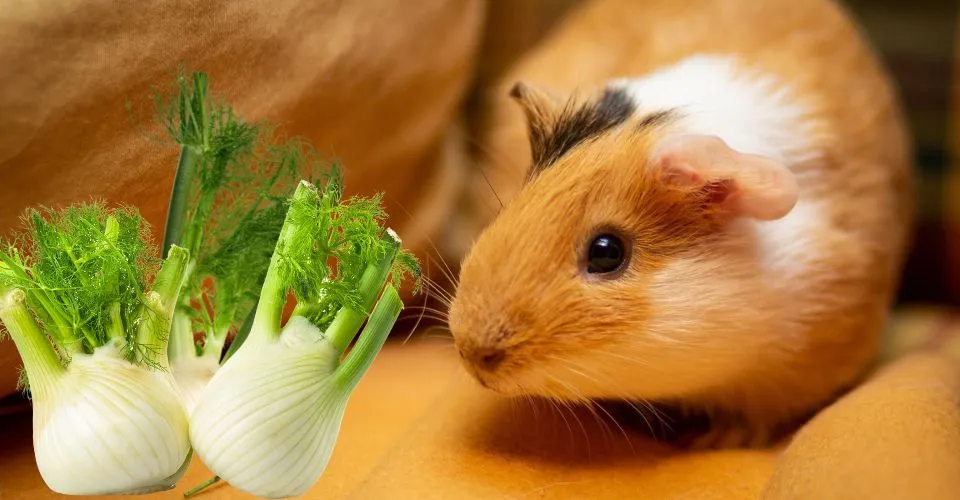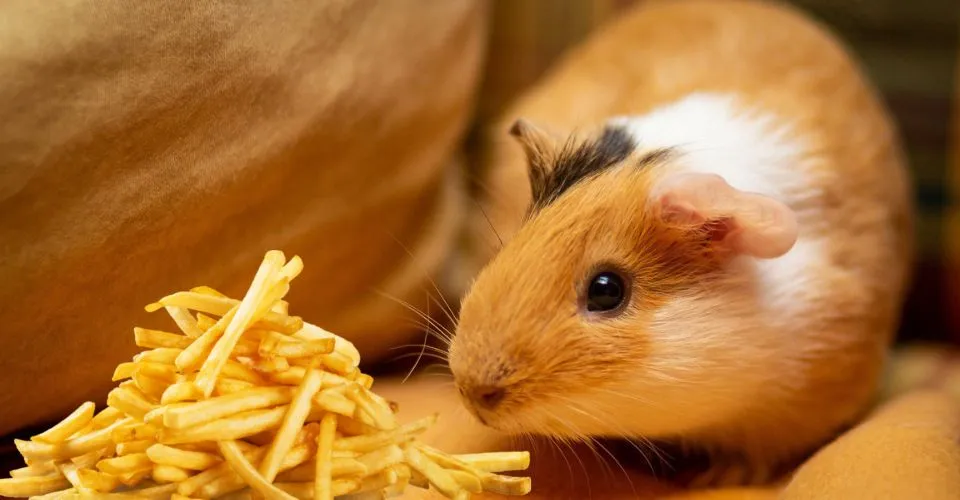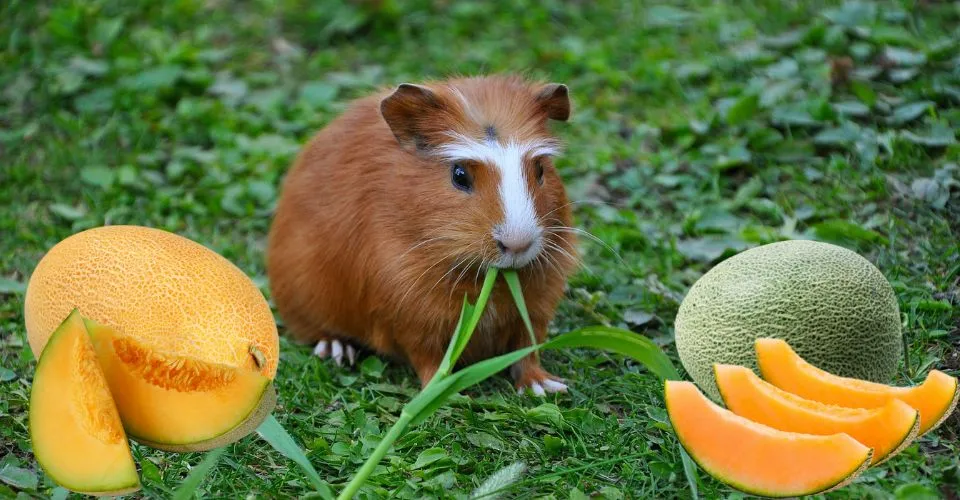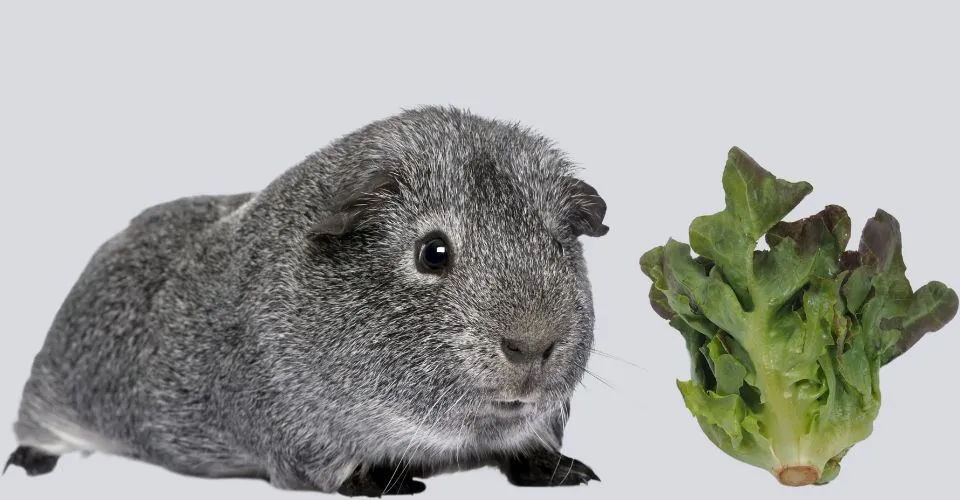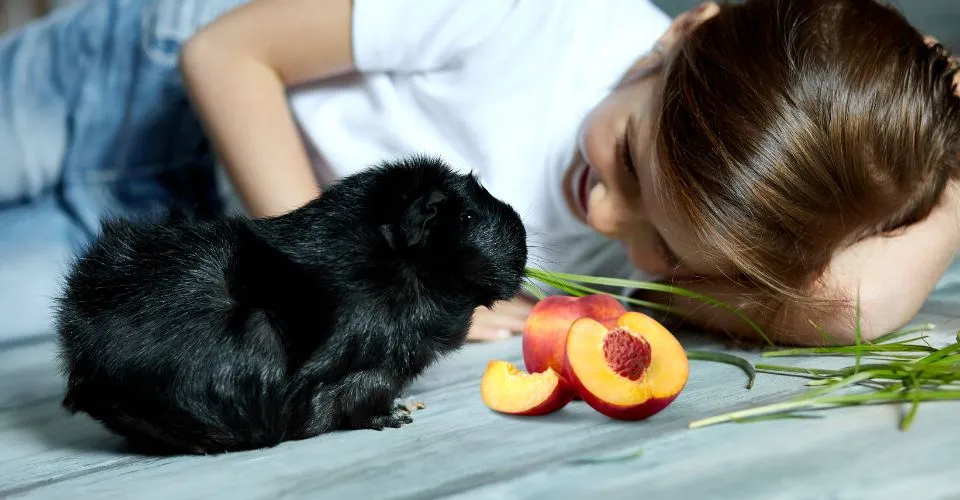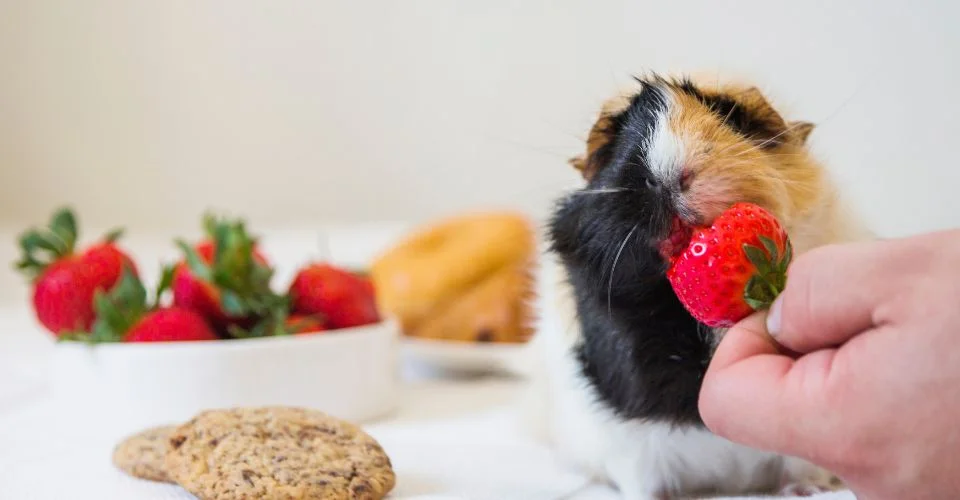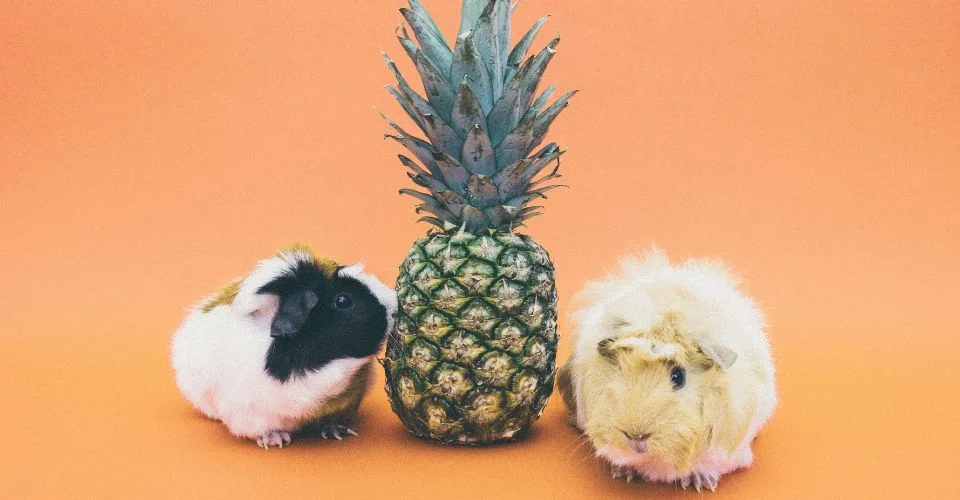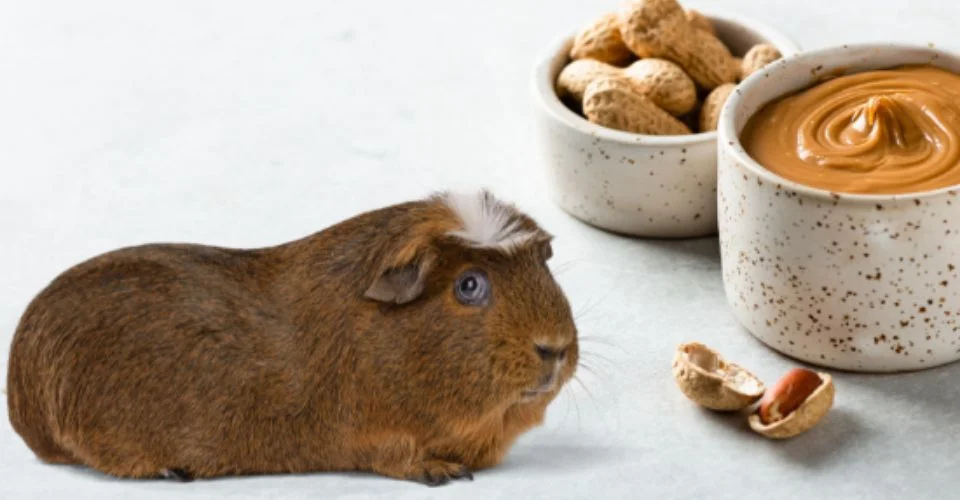Considering all bulb veggies belonging to the Allium family, including onions, garlic, chives, and leeks, are toxic to guinea pigs, you may think that fennels are bad for guinea pigs but it is not the case. Fennel bulb is safe for guinea pigs to consume. It does not belong to the infamous Allium family.
To the surprise of many, fennel belongs to the carrot family. It does not taste like carrots and definitely does not look even a bit like carrots. Fennels have a texture similar to celery and a sweet anise-like flavor, which guinea pigs love.
Can Guinea Pigs Eat Fennel?
Assuming it belongs to the notorious Allium family, you may have never thought of feeding fennel to your guinea pigs. But fennel does not belong to the Allium family and is completely safe for guinea pigs to eat as long as they are fed in moderation. Next time, you are preparing the bowl of veggies for your guinea pigs, you can throw in some nicely diced fennel in there. Guinea pigs can eat whole fennel—its fronds/leaves, bulbs, and stalks. But you should avoid giving fennel seeds to guinea pigs as they pose a choking hazard.
It might be hard for you to digest that fennel is safe for guinea pigs to eat. So, let’s dissect the nutrient profile of fennels to look at what it has to offer to guinea pigs.
Nutrient Profile of Fennel
Below we have listed the important nutrients with the amount present in 100 grams of fennels, according to the USDA FoodData Central.
| Nutrients | Amount |
| Water | 90.2g |
| Energy | 31kcal |
| Fat | 0.2g |
| Carbohydrate | 7.3g |
| Dietary fibers | 3.1g |
| Sugars | 3.93 |
| Calcium | 49mg |
| Phosphorus | 50mg |
| Potassium | 414mg |
| Vitamin C | 12mg |
| Potassium | 414mg |
In addition to the nutrient listed in the above table, fennels also contain various antioxidants including beta-carotene, thiamin, lutein, and zeaxanthin. and besides vitamin C, fennels also contain small amounts of vitamins A, B-6, E, and K.
Are Fennels Good for Guinea Pigs?
Brimming with water and containing a decent amount of carbs, dietary fibers, vitamin C, and a variety of antioxidants, fennels make for a healthy snack for guinea pigs, when consumed in moderate amounts. Let’s discuss the potential health benefits fennels have to offer to guinea pigs.
1. Water in Fennel is Hydrating for Guinea Pigs
Containing over 90% water, fennels make a hydrating snack for guinea pigs. If your guinea pig is not drinking ample water, you can sneak fresh fennels into its diet to make sure it stays hydrated. But keep in mind that when consumed in excess, fennels might do more harm than good.
2. Fibers in Fennels Promote Better Gut Health
Fibers are crucial for the smooth functioning of the gastrointestinal system of guinea pigs. So, the dietary fibers in fennels help smoothen the digestive process and improve the overall gut health of guinea pigs.
3. Vitamin C in Fennels Helps Prevent Scurvy in Guinea Pigs
Like humans, guinea pigs cannot make their own vitamin C. Thus, they need it in their diet. On average a guinea pig needs about 10 to 20mg of vitamin C per day, but some may require up to 50mg of vitamin C.
While fennels have a reasonable amount of vitamin C—12mg per 100g—it is not enough to meet the vitamin C requirements of guinea pigs. That said, coupled with other vitamin C-rich veggies and fruits, and fortified pellets, fennels help keep scurvy away from our guinea pigs.
4. Potassium in Fennels Helps Maintain Healthy Blood Pressure in Guinea Pigs
100g of fennels contain 414mg of potassium. Besides that, it also contains around 17mg of magnesium. Coupled with magnesium, potassium help guinea pigs maintain healthy blood pressure levels and reduce the risk of heart diseases and strokes. So, eating fennels in moderate amounts would help maintain a smooth and good flow of blood which is vital for good health.
5. Antioxidants in Fennels Promote Better Health in Guinea Pigs
Fennels contain a wide variety of antioxidants including vitamin C, beta carotene, thiamin, lutein, and zeaxanthin. These antioxidants help prevent free radical damage in guinea pigs and reduce the risk of chronic diseases like cancer. Lutein and zeaxanthin working together help guinea pigs deal with oxidative stress and inflammation in the liver. They also promote better eyesight in guinea pigs and save their vision from worsening as their age.
Health Concerns Associated With Guinea Pig Eating Fennel
Fennel makes for a fairly safe and healthy snack for guinea pigs but only when consumed sparingly as a treat in moderate amounts. When consumed in excess, it poses various health risks to guinea pigs.
a) High in calcium and Phosphorus
While guinea pigs do need a certain amount of calcium and phosphorus in their diet, too much of it could lead to the development of kidney and bladder stones in guinea pigs. 100g of fennels contain 49mg of calcium and 50mg of phosphorus. Besides that, the imbalanced calcium-to-phosphorus ratio is also a cause of concern here. The suitable Ca:P ratio for guinea pigs ranges from 1.3:1 to 1.6:1. But for fennels the Ca:P ratio is 1:1.02, which could lead to the weakening of guinea pig teeth and bones. To avoid this, you should couple fennel with other fruits and veggies that have a higher Ca:P ratio.
b) Too Much Water and Fiber Could Cause Loose
Brimming with water and high in dietary fibers, fennels pose a risk of upsetting guinea pig stomachs when consumed in excess. It would lead to diarrhea and loose stool in guinea pigs. So, limit the amount and frequency of fennels for guinea pigs.
How to Offer Fennels to Guinea Pigs?
After having thoroughly washed the fennel. You can cut it into small pieces and mix it with the other veggies in the guinea pig bowl. If you only have to offer fennel stalks to offer to guinea pigs, you do not need to cut it into small pieces; you can offer the whole stalk to your piggies. If you are getting your guinea pigs to eat from your hand, long fennel stalks would work wonderfully. Long stalks will allow guinea pigs to eat from your hand while maintaining a fair distance.
How Much And How Often to Give Fennels to Guinea Pigs?
Guinea pigs can have fennels every other day, in small amounts. Since fennels are high in calcium and phosphorus, you should mix them with other fruits and veggies that are low in calcium. This would help keep the risk of the development of urinary stones in check.
Fennels and Guinea Pigs FAQs
Can Guinea Pigs Eat Fennel Bulbs?
Yes, guinea pigs can eat fennel bulbs. They are safe for guinea pigs to eat sparingly in moderate amounts as a treat. But keep in mind that they do not have considerable nutritional benefits to offer our guinea pigs. They are less nutritional as compared to the fennel stalks and leaves.
Can Guinea Pigs Eat Fennel Leaves/Stalks?
Yes, guinea pigs can eat fennel leaves. In fact, crunchy fennel stalks are what guinea pigs love the most. Fennel stalks are also more nutritional as compared to bulbs. So, it is best that instead of offering fennel bulbs, you offer stalks to your guinea pigs. On top of the health benefits discussed above, munching on crunchy fennel stalks would also help promote better dental health and wear down every-growing guinea pig teeth.
Can Guinea Pigs Eat Fennel Seeds?
No, guinea pigs cannot eat fennel seeds.
No doubt fennel seeds are the most nutritious as compared to other parts of the fennel plant; you should never feed fennel seeds to guinea pigs. They not only pose a choking hazard but are also hard to digest for guinea pigs. They will pose a risk of upsetting the guinea pig’s stomach. So, it is best that you avoid feeding fennel seeds to your guinea pigs.
Do Guinea Pigs Like Fennel?
Yes, guinea pigs love the sweet and anise-like flavor of fennels. The crunchy, celery-like texture of fennels is what makes them further appealing to guinea pigs. While guinea pigs would start nibbling on fennel bulbs if you put them in their cage; if given the chance to choose between fennel stalks and bulbs, they would most definitely go for the stalks. It is the fresh fennel stalks that guinea pigs like the most.
Final verdict: Can Guinea Pigs Have Fennel?
Yes, guinea pigs can have fennels in moderate amounts, twice or thrice a week. Guinea pigs can eat fennel bulbs, leaves, as well as stalks; but it is the leaves and crunchy stalks that they like the most. That said, you should never give fennel seeds to guinea pigs.
Check out other guides to what guinea pigs can or cannot eat:
